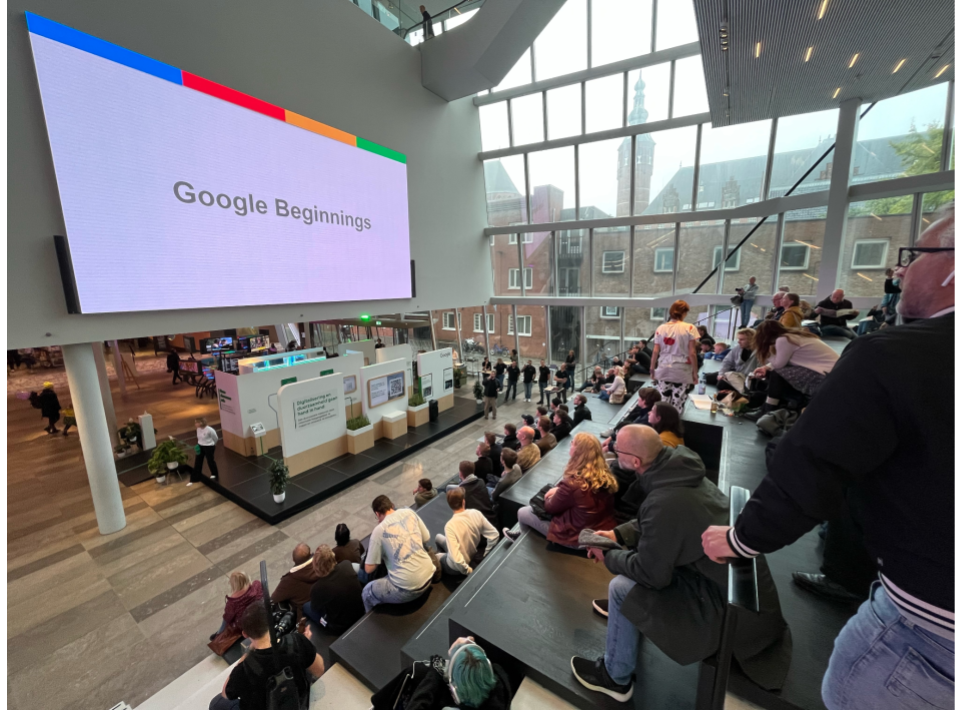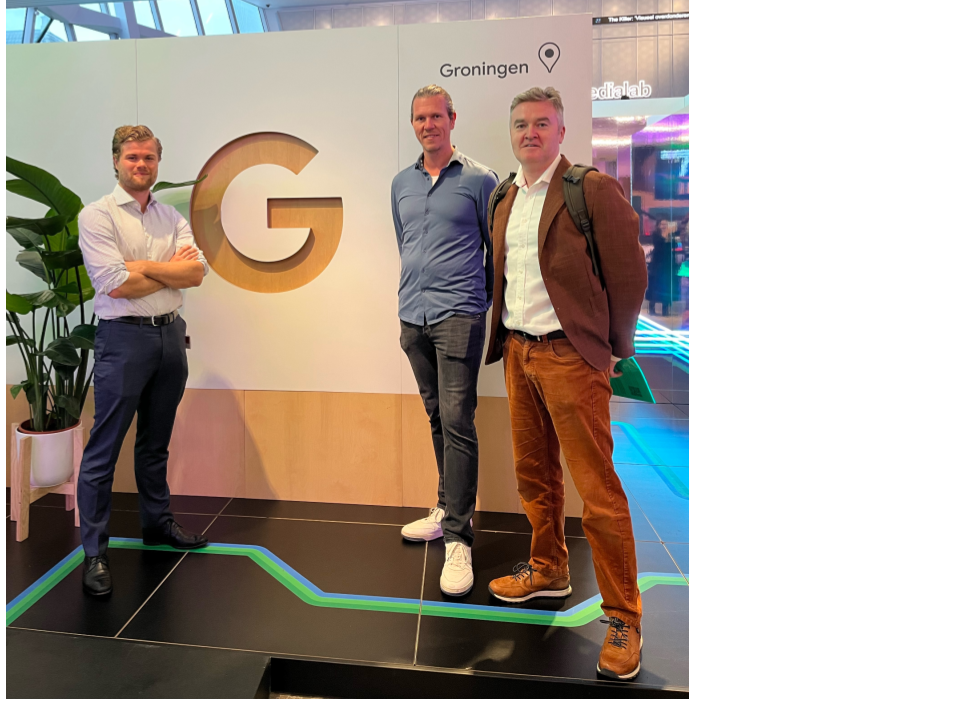
Code School Finland attended the Groningen leg of Google’s European Roadshow of its data centres. This event brought together local education providers, regional stakeholders as well as staff from the Eemshaven data centre.
The big takeaway from this event was that every great innovation has small beginnings. Google staff from the local data centre in Eemshaven walked us through the humble beginnings of Google with its garage setup and off-the-shelf servers piled onto a cheap desk.
What became clear in its journey to today was that organisations ultimately have to sequence the logical steps behind a process. Today’s data centres require efficiently cooled servers and designing and running these requires a high degree of computational thinking. This is a core competency that develops over a long timeframe.
During the roadshow we were also introduced to the Google apprenticeship programme, which is a critical part of Google’s recruitment drive. Present at the event were prospective apprentices from local vocational colleges as well as apprentices who has ended up working at the data centre in Eemshaven.
What was clearly apparent was a gender imbalance, something which has its roots in our education system. Speaking to Google staff, they pinpointed the critical point of 3rd grade in deciding the future direction of skill sets. It is at the age of 8 that girls begin to switch off from STEM. This trend continues into secondary education and results in a lack of representation at the vocational stage. It is common knowledge that intervention in primary education to promote computational thinking is vital to a thriving knowledge economy.

Google’s Code School Europe project is making a start
How do we begin then to prepare young people for complex processes at such a developmentally early stage? What are the ‘small beginnings’ of an education system geared towards future skills?
Enter Google’s Code School Europe project. Beginning with schools around the Hamina data centre in Finland in 2021, Code School Finland began with lego robotics education for local teachers and schools. The project has since expanded to schools in Belgium and Ireland with block-based programming and this year is expanding to the Netherlands and Denmark.
Despite its own small beginnings the project is making a timely intervention with upper primary school students to show them the potential of coding in creating enjoyable projects. The high engagement of students is common to both girls and boys and begins the critical competency of producing an intended outcome by sequencing commands in the right order, a skill which Google’s own data centres rely upon on a constant basis.
After 2 years of the project, it is evident that there are core ingredients that help such a project thrive;
- A connection with the local curriculum
- Buy-in from local government and teacher training colleges
- A willingness to scaffold such content up from Grade 3 into secondary.
It is exactly this process of scaffolding that is both so challenging and rewarding. Google can fondly look back upon how it scaffolded from a small server setup for a simple search engine to low impact data centres that use A.I. to catalogue and organise vast quantities of data.
Perhaps some day we in education can ourselves look back from the vantage point of a knowledge economy workforce to our own small beginnings of classrooms taking their first steps with coding?
Leave a Reply